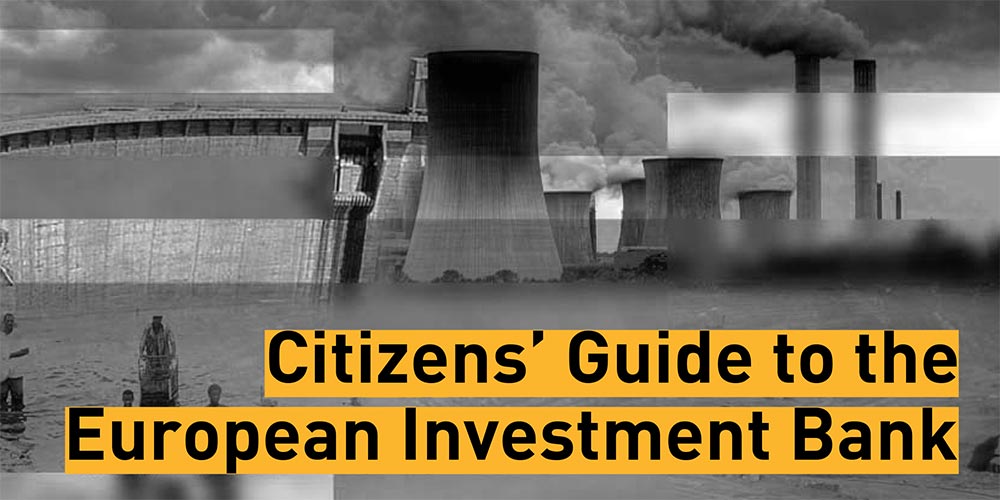In-depth information and manuals for action for the institutions we monitor
Introduction
At a first glance, the environment and activities of international financial institutions (IFIs) appear unrelated – but this is only the first glance.
IFIs are public institutions that are the main agents in a global financial architecture. As public institutions, they should be accountable to the public and act in its common good. However, their track record is far from perfect.
There is little, in-depth knowledge about these institutions among the general public but there’s a growing demand for such information. Our guides aim to provide a tool for readers, not so much as bed-side reading, but more as a manual. This tool is not only about information but action too. It is written with the aim to provide knowledge to concerned citizens to raise their voices about the operations of IFIs.
As public institutions, development banks should be accountable to the public and act in its common good.
European Bank for Reconstruction and Development (EBRD)
We have prepared a series of papers for NGOs and citizens who are concerned about the EBRD, its policies, and projects that it finances. The papers clearly explain what information the EBRD makes available to the public and how it can be accessed, what the process is for a project from application for funding to implementation, who is responsible for making decisions in the EBRD, and where you can find your local EBRD office.
These papers are based on several years of experience in working on EBRD issues and should provide you with the initial and basic knowledge that you will need if you want to challenge an EBRD project or policy as well as some useful practical tips.
| EBRD and the Council of Europe (pdf) | 2002 |
| Toolkit on the EBRD’s Project Complaint Mechanism (pdf) | 2014 |
| Access to EBRD Information (pdf) | 2010 |
| EBRD Project Cycle (pdf) | 2002 |
| EBRD Project and Public Consultation (pdf) | 2004 |
| EBRD Decision-making Structure (pdf) | 2002 |
relevant information on the EBRD’s website:
European Investment Bank (EIB)
The European Investment Bank is the world’s biggest public financial institution.
For an in-depth look, the coalition Counter Balance has put together a useful guide for citizens. It is available in English (pdf) and in other languages here.
European complaint mechanisms
The Citizens’ guide to European complaint mechanisms aims to help individuals and NGOs to successfully use existing institutional mechanisms at the European and international level to protect the environment and ensure adequate/effective use of public funds.
The guide summarises citizens’ experiences so far with appealing to international institutions such as the EU Ombudsman and the Aarhus Convention committee. By building on these examples, it offers assistance for a better use of the complaint mechanisms.
- Download the guide as pdf
- visit the interactive version
- read parts of it in German (translated by the German environmental organisation Deutscher Naturschutzring (DNR))
Espoo Convention
A guide for the Espoo Convention on Environmental Impact Assessment in a Transboundary Context is available for download here (in English, Russian and Ukrainian). It was prepared by the European Environmental Bureau, the European ECO Forum and the Resource & Analysis Center “Society and Environment”.
World Bank
Our friends over at the Bank Information Center have put together an excellent Information and Advocacy Guide on the World Bank.
Additional resources
Both ENDS Information Package Nr. 11 (pdf) on multilateral financial institutions


